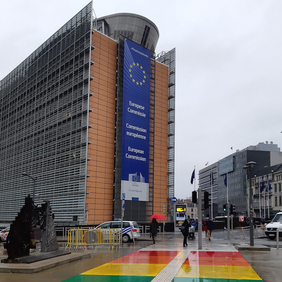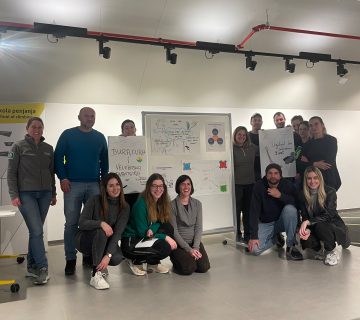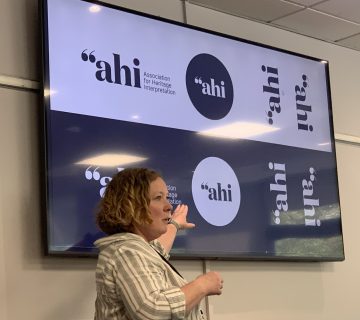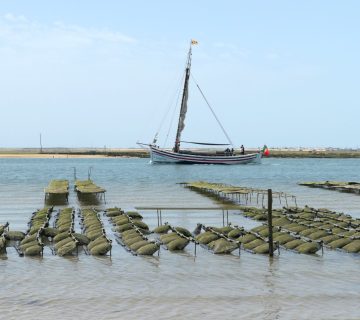A very interesting and fruitful cooperation between Interpret Europe and EUROPARC Federation has been taking place during the last 12 months, focusing on the role of natural heritage to explore cultural identity.
Four steps were announced through the European Year of Cultural Heritage and after events in Siggen in Germany, Kőszeg in Hungary, and Aviemore in Scotland, it was the turn of Brussels in Belgium to host the last event on 28 November. The seminar, Nature and Culture in Dialogue, took place, hosted by the European Commission, DG Education and Culture.
Special guests contributed their unique perspective and ideas, opening a dialogue that must continue to lead to synergies for action.
Anne Grady, DG Education and Culture, talked about The European Year of Cultural Heritage and how 2018 was buzzing from activity, not only in Europe but also around the world. A huge variety of events were held, promoting cultural heritage and ‘celebrating the past to build the future’.
Fotios Papoulias, European Commission Unit D.3 Nature Protection, DG ENVI, shared the results of the European Year of Cultural Heritage in the Environmental Perspective. As he mentioned, almost half of all World Heritage Sites in the EU are close to or overlapping Natura 2000 protected areas, so we can definitely understand that natural and cultural heritage are directly connected, facing similar challenges and opportunities at the same time.
Paolo Fontani, Director of the UNESCO Liaison Office in Brussels, spoke about Linking Natural and Cultural Heritage. He explained that the World Heritage Sites receive an important impact from ongoing economic development and the need of rebuilding some areas should also give them the chance to save heritage. For that, strong synergies and dialogue are needed.
Markus J. Prutsch, Senior researcher and administrator at the European Parliament, responsible for culture and education policies, analysed the relationship of natural heritage and cultural identity in Europe, explaining that we can retain our national or regional identity, but we can have a look with a European lens, and also the same with nature.
Ignace Schops, President of the EUROPARC Federation, talked about natural and cultural heritage in protected areas and how nature tells us a story that we have to take into account and use it as a mechanism to work on a sustainable future, not only in the protected areas but everywhere on this planet.
And one of IE’s Managing Director’s, Thorsten Ludwig, highlighted how natural heritage influences cultural identities, explaining that nature is a stock of metaphors for self-interpretation providing us the inspiration to see ourselves reflected in it, and it offers a vast variety of such metaphors so we construct our values, our moral, our ethics around this variety.
Participants also contributed with their experience, leading to the common conclusion that most culture is rooted in nature. Also, our heritage, whether cultural or natural, where the past meets the future, needs our joint actions through dialogue and synergies to preserve and promote the values that shape our identities.
Athina Tsekoura works in the environmental education field and can most often be found underwater. She is IE’s Natural Heritage Coordinator and can be contacted at: athina.tsekoura@interpret-europe.net.
To cite this article:
Tsekoura, Athina (2018) ‘Nature and culture in dialogue’. In Interpret Europe Newsletter 4-2018, 4.
Available online:
www.interpret-europe.net/fileadmin/Documents/publications/Newsletters/ie-newsletter_2018-4_winter.pdf




